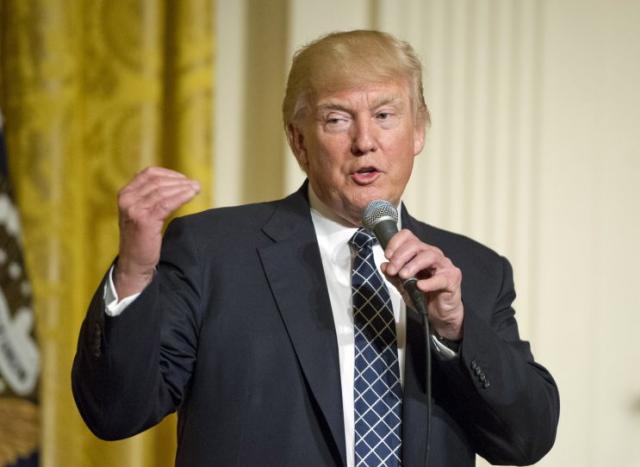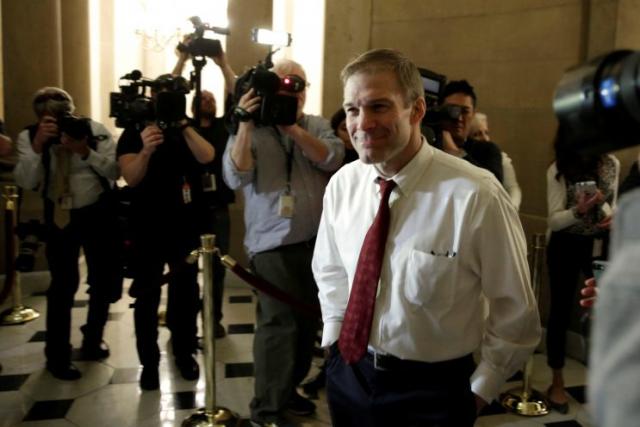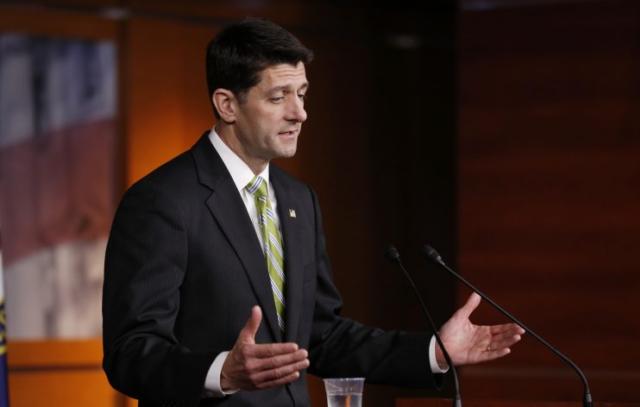The state of health care talks may be uncertain, but one thing is not: The knives are out for the House Freedom Caucus.
The White House and congressional leadership clearly want to put the right-wing group of 30 or so House lawmakers on the defensive by blaming it for last week’s climactic demise of a bill to repeal and replace Obamacare.
That may be a way for House Speaker Paul Ryan, R-Wis., to make another attempt at passing a health care bill through the House, or simply to try to change a dynamic that could make it harder for President Trump to accomplish anything significant.
At the moment, there is plenty of talk about salvaging the repeal effort, with some reports suggesting that Ryan might make a second attempt in a few days.
“They want to run the bill next week,” one Republican source outside Congress — but well connected to leadership — told Yahoo News. A spokesman for a lawmaker involved in discussions with the White House confirmed that there are hopes for a second attempt next week, contingent on whether an agreement can be reached.
Ryan spokeswoman AshLee Strong said there was “no schedule update at this point.”
“The speaker has encouraged members to continue talking so we can get to a place of yes and fulfill our promise to repeal and replace Obamacare,” she said.

But even if there is no second vote on Obamacare repeal, the White House and congressional leadership are now laying groundwork for future action by putting pressure on the Freedom Caucus.
Both Trump and Ryan had embraced the health care legislation, only to see moderate and conservative Republicans break party ranks and refuse to back it. After Ryan abruptly canceled a planned vote last Friday, Trump said he was moving on to other matters, and White House officials said over the weekend that they would look to work with Democrats moving forward.
Trump himself set the blame on the Freedom Caucus in a Sunday tweet.
A senior Republican source told Yahoo News that the White House sees the Freedom Caucus as irrelevant and will work with Democrats in the future before it does anything with them, though it’s unclear if that’s a negotiating tactic with the hardline conservative group. A senior White House official tempered that assessment somewhat, and did not rule out working with caucus in the future.
The GOP leadership’s public and private messaging has been intended to make Freedom Caucus members think very hard about whether they want to be held responsible for the failure to repeal Obamacare, even as Trump adviser Steve Bannon and White House chief of staff Reince Priebus are talking with members of Congress this week to probe for ways forward.
“Trump is doing a good job of dangling a new process in front of [the House Freedom Caucus], but also scaring them by saying he’s going to walk away,” said a source close to both the White House and to House leadership. “I think the president saying he is going to walk away from this is very intended to spook them.”

And certainly, Freedom Caucus lawmakers have reacted to the repeal failure last week by clamoring for a second try, as if trying to call back a train leaving the station.
“Quit blaming everyone,” Rep. Jim Jordan, R-Ohio, a Freedom Caucus leader, told CNN on Wednesday morning. “Let’s just get back to work, do the responsible thing, and put together a piece of legislation that we can all be proud of.”
Trump himself signaled shortly after Friday’s scrapped vote that he was ready to move onto tax reform. And on Tuesday, White House press secretary Sean Spicer downplayed the state of health care negotiations.
“I don’t know how detailed you want it,” Spicer said, according to the White House transcript. “Have we had some discussions and listened to ideas? Yes. Are we actively planning an immediate strategy? Not at this time.”
Even if a health care bill can’t be resurrected at the moment, Congress must fund the government before April 29, when the current temporary budget agreement expires. If Ryan cannot pass a continuing resolution through the House in time, it would shut down the government. That would be a terrible follow up to the health care debacle.
Then there is tax reform, an issue just as thorny as health care and one that already appears to be imperiled.

And so the plan is to bring the Freedom Caucus to heel. Some don’t think this will really happen until some of the group’s members lose their seats next year in primary fights.
“Unless they feel some pain they will never change,” said one aide to a senior Republican senator. “Those guys are not honest brokers in these types of dealings. I’ve seen it too many times. You give them something and then they move the goal posts.”
This is certainly House leadership’s view. But the Freedom Caucus and its outside allies insist that they were not consulted before the repeal legislation was unveiled, and that they did not “move the goal posts.” Rather, they say they focused their negotiation demands on one item: removal of what is known as Title 1 regulations in Obamacare that conservatives believe constrain insurance companies from offering coverage at lower costs.
Ryan said that he did not think Senate rules would allow those measures to be included in the narrow process — known as reconciliation — through which the Senate can pass one piece of legislation each budget year that requires only a simple majority. Republicans have 52 seats, not enough to overcome a Democrat filibuster.
But Sen. Mike Lee, R-Utah, said the Senate parliamentarian had told him that changing Obamacare regulations might be OK under the reconciliation process.
“The ask was always the same: repeal the regs,” said the Senate Republican aide.














